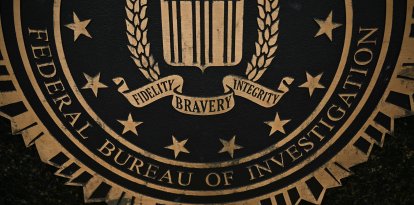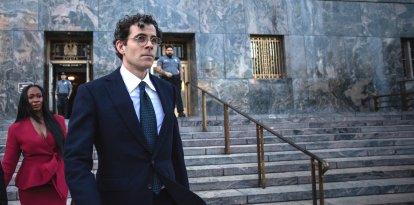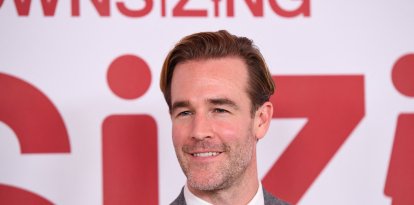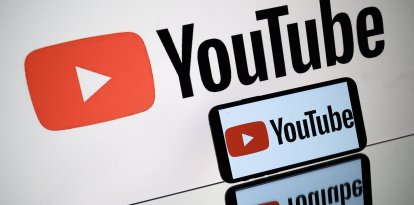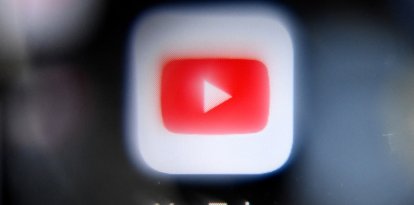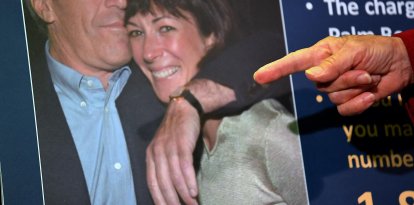Cancel culture: celebrities persecuted for unpopular opinions
J. K. Rowling, Johnny Depp and Scott Adams are some of the people who have lost work opportunities after falling victim to the woke mob.

Flickr
Scott Adams is the latest victim of cancel culture. Defined as "a phenomenon in which those who are deemed to have acted or spoken in an unacceptable manner are ostracized, boycotted or shunned. This shunning may extend to social or professional circles — whether online or in person — with most high-profile incidents involving celebrities. Those subject to this ostracism are said to have been "cancelled."
In this sense, there were many celebrities who, like Adams, have suffered the consequences of being cancelled by society, being condemned to rejection or even losing important work opportunities.
Names such as J.K. Rowling, Liam Neeson and Johnny Depp have been surrounded by controversy and saw how, as happened with the creator of Dilbert, they were criticized for expressing their ideas or acting in a way that certain parts of society did not approve. These are some of the most famous cases, in recent years, of celebrities who were canceled by the woke mob:
J. K. Rowling
The creator of Harry Potter was the victim of a controversy that, to this day, still haunts her. In her case, it was comments she made following an article that got her cancelled. On June 6, 2020, the writer replied to an opinion piece referring to women as "people who menstruate."
That tweet triggered a wave of backlash. After it was published, Rowling began to receive all kinds of insults and that she herself shared, just 24 hours later, on her Twitter profile:
In response, the popular British writer decided to fight back and, via a Twitter thread, defended the statement she made day before:
That thread, instead of clearing the air, just made things worse. Many fellow celebrities turned their backs on her, including several actors who appeared in the film adaptation of Harry Potter such as Emma Watson and Daniel Radcliffe.
However, that didn't silence Rowling. Two years later, she was in the news again in a new battle with cancel culture, this time for speaking out against artists who supported the transgender children's charity Mermaids. It turned out that the organization had connections with pedophile advocates. That discovery, Rowling argued, would have caused "panic" among several influential personalities:
Rowling was once again under attack from the trans community, this time receiving support from actors such as Mark Hamill or Helena Bonham-Carter, who spoke out about cancel culture. The actor who played Lord Voldemort in Harry Potter, Ralph Fiennes also supported Rowling. He spoke during an interview with The New York Times about the insults that the writer received on a daily basis:
Johnny Depp
The actor famous for his role as Captain Jack Sparrow in the Pirates of the Caribbean saga, Johnny Depp, also experienced the consequences of cancel culture first-hand. His tumultuous lawsuit against his ex-wife Amber Heard cost him his roles in both the Pirates of the Caribbean and the Fantastic Beasts saga.
Depp was accused of assaulting his then-wife in 2016. The actress alleged in her lawsuit that this was the main reason she was seeking a divorce, after marrying the actor only 15 months earlier. A restraining order was granted, requiring Depp to stay more than 200 feet away from Heard at all times:
The actor denied the allegations. Shortly thereafter, Heard dropped the physical abuse claim. She and Johnny Depp sent out a press release explaining that they had settled their differences and that an agreement had been reached:
In January 2017, both parties signed the agreement. Everything seemed to be solved. However, in December 2018, the couple was back in the news. Amber Heard published an op-ed piece in The Washington Post in which she asserted that she was "a public figure representing domestic abuse.” The article did not mention Depp's name, but it was widely assumed that he was to whom Heard was referring. After this, Depp lost his roles in Pirates of the Caribbean and Fantastic Beasts.
The situation escalated, and in December 2019, The Post published another article speaking out against Depp. On that occasion, Heard's opinion was not cited, but it served to prompt the performer to file a defamation lawsuit against his ex-partner in March 2020. In it, the actor sought $50 million, calling Heard's allegations "demonstrably false." Depp also filed a lawsuit against The Sun newspaper, in which he was again accused of abuse.
However, the controversial trial did not come until 2022. Depp filed the defamation suit in Virginia court and, although Heard tried to get it overturned, she was unsuccessful. The trial resulted in a victory for Depp, to whom Heard was ordered to pay $10 million for defamation. However, the actress ultimately onlyto the actor, as she claimed in an Instagram post:
Roseanne Barr
Roseanne Barr was one of the great comedians of the 1980s and 1990s and another well-known victim of cancel culture. In fact, her star status reached such a level that she got her own series on ABC titled Roseanne. Decades later, in 2018, the American network announced that the series would return as a remake. The new sitcom would star John Goodman, Sara Gilbert and Laurie Metcalf.
However, shortly after the announcement, Barr made a mistake. She posted a tweet about former Obama adviser Valerie Jarrett for which she was accused of being a racist. She pointed out that it was a joke. But Barr realized her mistake and publicly apologized: "I apologize to Valerie Jarett and all Americans. I am truly sorry for making a bad joke about her politics and her appearance. I should have known better. Forgive me, my joke was in bad taste," she tweeted minutes before announcing she was leaving Twitter.
Her gesture came to no avail. The Roseanne remake was cancelled, and Barr was ousted from her agency, ICM Partners. Instead of the expected return of Roseanne, ABC executives decided to launch a spin-off called The Conners. The new sitcom, focusing on the remaining family members, announced in its pilot episode that Barr's character had died of a prescription opioid overdose.
Roseanne wasn't the only thing she lost. The comedian suffered quite a bit after being canceled and, in fact, ended up deleting her Twitter account. That's why she recently went on Fox's Tucker Carlson Today show to announce that she would be doing a special entitled Roseanne Barr: Cancel This! In that interview she also talked about what it meant for her to return to the stage and to be able to speak publicly about her cancellation:
Liam Neeson
Liam Neeson also fell victim to cancel culture in 2019. In his case, it was during the promotion of his film Cold Pursuit. During an interview with The Independent, the performer recalled an incident in which a member of his family claimed to have been raped. After this, the publication claims, Neeson "wandered the streets for a week carrying racist and brutal thoughts." Neeson explained to the media what had happened. A relative of his had told him that she had been raped, and her reaction surprised him:
After that, Neeson was overcome with rage. As he told the British newspaper, during the following days he went around the areas where black citizens live in search of "be set upon so that I could unleash physical violence:"
Although Neeson never justified his actions, the mere fact of recounting this ordeal to a journalist and allowing him to publish it made him a victim of cancel culture. Cold Pursuit's red carpet was cancelled within days and, after appearing on Good Morning America in an attempt to clear up what happened during a chat with Robin Roberts, several of his promotional events were also cancelled.
Scott Adams
Cartoonist Scott Adams is the latest example of a celebrity falling victim to cancel culture. In his case, it was from statements that the creator of Dilbert gave in one of his YouTube videos. In the video, the comedian claimed that black Americans are a "hate group" after watching a video in which a number of black citizens denigrated whites:
Following this, all the media and publishers cancelled Dilbert's cartoons in response to the claims Scott Adams had made. However, the worst was yet to come, and only a day after Dilbert was deplatformed, its creator claimed that his publisher had resigned and that, in addition, he had lost the publishing contracts for works not linked to Dilbert:















